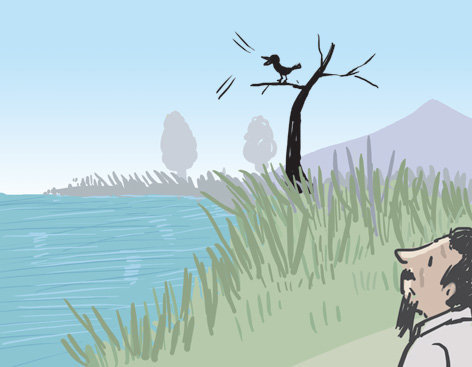Humanity of poet
Humanity of poet
Posted February. 25, 2022 07:51,
Updated February. 25, 2022 07:51

A water bird makes the sound of “go-ak, go-ak.” Just as crakes and cuckoos got their names from how they sound, this is where go-ak came from. According to legend, a daughter-in-law ended her life after ill-treated by her mother-in-law to be reincarnated as go-ak. Presumably because of a pile of grudge between the two women, folks found the meaning of how go-ak sounds – “A mother-in-law - which ‘go’ means – is a woman of wickedness, which ‘ak’ symbolizes.
As per the author’s descriptions attached to the poem, when the speaker feels sorry for the water bird while hearing its saddening sounds, a passer-by approaches grumbling that the bird might have been an undutiful daughter-in-law. He even makes an unreasonable argument that mothers-in-law have every reason to say that her daughters-in-law are bad but it does make little sense when daughters-in-law describe their mothers-in-law as bad.
The author talks to himself on the daughter-in-law’s side, thinking that she would have not lost her life if her mother-in-law had not been a bad woman. He seems to disapprove of the rumor mill after her death. Given the circumstances in the poem, the poet could have reprimanded the passer-by harshly but only murmurs while defending the daughter-in-law with a silent voice. In an era driven by Confucius ritualism, it must have been a rarity that noblemen side with daughters-in-law too obviously.
Even Su Dongpo, a famous Chinese poet, writes a phrase, “Go-ak, go-ak. It is not that the mother-in-law is bad but that her daughter-in-law is destined to die young.” Compared to fatalism in Su Dongpo’s poetry, Fan Chengda’s piece has a scent of humanity, albeit faintly.




![[단독]‘KF-21 자료 유출’ 印尼와 갈등 봉합…방산협력 재개](https://dimg.donga.com/c/138/175/90/1/wps/NEWS/IMAGE/2025/06/02/131732473.1.jpg)


